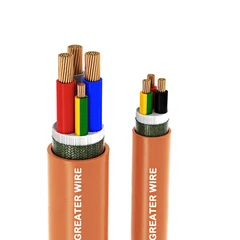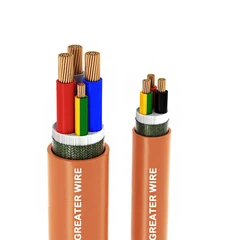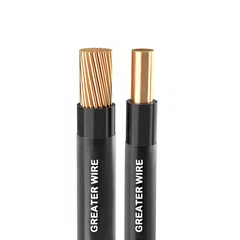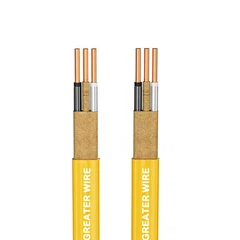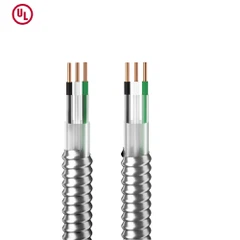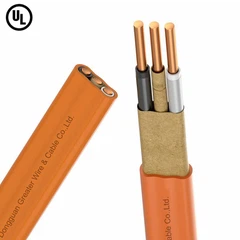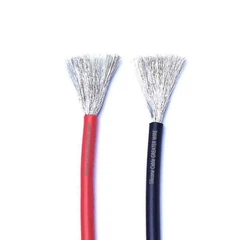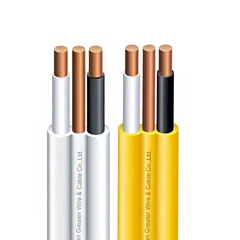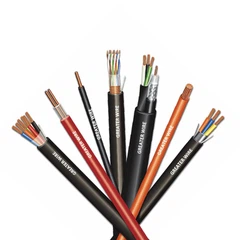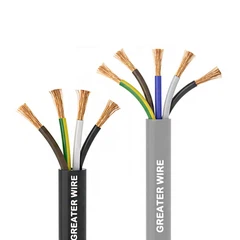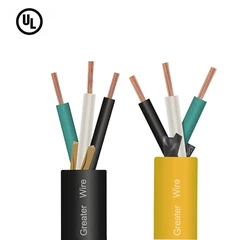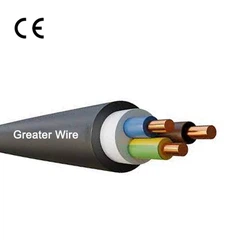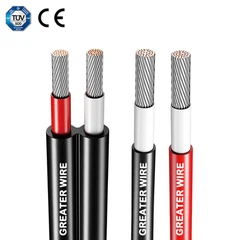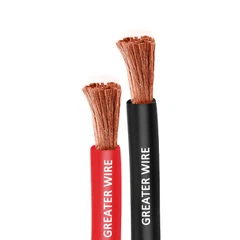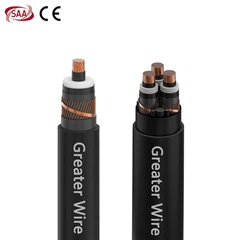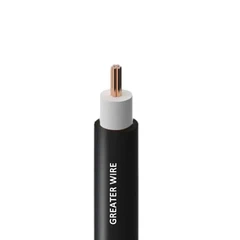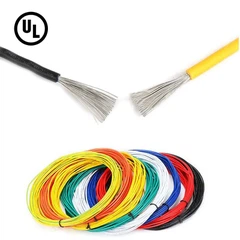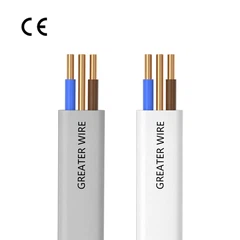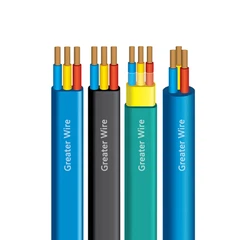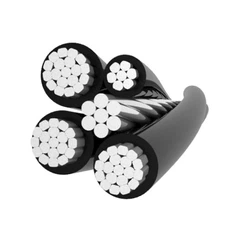When it comes to underground electrical wiring, waterproofing is one of the most critical factors that determines long-term safety and reliability. Underground environments are naturally exposed to moisture, groundwater, rain infiltration, and soil humidity, all of which can easily compromise the insulation of cables if not properly protected.
This leads us to a key question: Can silicone be used to waterproof underground wires? In this article, we'll explore the waterproofing capabilities of silicone insulation, its advantages and limitations in underground applications, and the industry standards that govern waterproof cable installation.
Why Must Underground Cables Be Waterproof?
Unlike indoor wiring, underground cables face harsh conditions:
- Moisture & Water Infiltration – Soil and groundwater can cause insulation breakdown.
- Corrosion – Persistent dampness accelerates conductor oxidation.
- Short Circuits & Failures – Water inside the cable can lead to leakage currents or fire hazards.
Real-world example: In large-scale solar farms, underground DC cables that lack proper waterproof protection have been reported to fail within 2–3 years due to water ingress, causing costly replacements.
Therefore, ensuring waterproofing and moisture resistance is essential for underground wiring to maintain safety, performance, and long service life.
The Waterproof Principle of Silicone Material
Silicone rubber is widely used as an insulation material because of its unique properties:
- Hydrophobic Surface – Naturally repels water droplets, reducing moisture penetration.
- Thermal Stability – Remains intact in both hot and cold underground environments.
- Elasticity & Flexibility – Prevents cracking when exposed to soil movement or vibration.
- Chemical Resistance – Resistant to acids, alkalis, and salts often found in soil.
This makes silicone-insulated wires suitable for environments where moisture and dampness are unavoidable, such as tunnels, basements, or partially buried conduits.
Key Challenges of Underground Cable Environments
Despite silicone's excellent material properties, underground conditions present additional challenges:
- Long-Term Water Immersion – Continuous submersion in water requires more than standard silicone insulation.
- Mechanical Pressure – Soil compaction can stress the cable.
- Rodents & Pests – Burrowing animals can damage cables.
- Temperature Cycling – Seasonal freezing and thawing cause expansion and contraction of soil.
The Role of Silicone Wire in Waterproofing Applications
Silicone-insulated wires are effective at:
- Moisture Resistance – Preventing humidity and condensation from entering the conductor.
- Splash & Rain Protection – Performing well in damp and wet outdoor environments.
- Short-Term Submersion – Withstanding limited exposure to water without losing insulation performance.
However, it's important to clarify: Silicone wire is moisture-resistant but not designed as a direct burial waterproof cable. For underground applications, silicone wire is often used in conduit systems or in specialized composite cables where additional waterproofing layers are applied.

Waterproofing ≠ Direct Burial: The Key Distinction
A critical misconception is that "waterproof wire" automatically means it can be buried directly in the soil. This is not true.
- Waterproof Silicone Wire – Protects against humidity, rain, and splashing. Suitable for conduit installations underground.
- Direct-Burial Waterproof Cable – Engineered with extra protective layers such as water-blocking tape, PE outer sheath, or armoring, designed to withstand years of continuous soil and water exposure.
Example: A hospital project required underground power cables for outdoor lighting. Standard silicone wires were used inside PVC conduits to provide both waterproofing and mechanical protection, rather than burying the silicone wires directly in soil.
Industry Standards and Waterproof Certifications
Underground cables must comply with strict international standards, which may include:
- IEC 60502 – Power cables with extruded insulation for rated voltages.
- UL 758 / UL 62 – Flexible wires and cords with waterproof and flame-resistant properties.
- EN 50618 (TÜV Standard for Solar Cables) – Ensures UV resistance, water resistance, and long lifespan in outdoor/underground solar applications.
- RoHS/REACH – Guarantees environmental compliance, ensuring cables are non-toxic and halogen-free.
Why Choose Greater Wire & Cable?
At Dongguan Greater Wire & Cable Co., Ltd., we take pride in offering a comprehensive edge to our customers. With large in-stock inventory, we can respond quickly and ensure fast delivery even for urgent orders. Our professional technical team provides expert guidance on product selection and underground installation, helping clients find the best-fit solutions. Backed by proven project experience across airports, subways, factories, schools, shopping complexes, hotels, hospitals, and solar power plants, we have earned the trust of global partners. In addition, we provide full customization options, including materials, colors, dimensions, printing, and packaging, to meet diverse application needs. Whether for infrastructure, energy, or industrial projects, Greater Wire & Cable consistently delivers quality, safety, and efficiency.
📞 Contact Us Today
Dongguan Greater Wire & Cable Co., Ltd.
Tel/WhatsApp/Wechat: +86 135 1078 4550 / +86 136 6257 9592
Email: manager01@greaterwire.com

